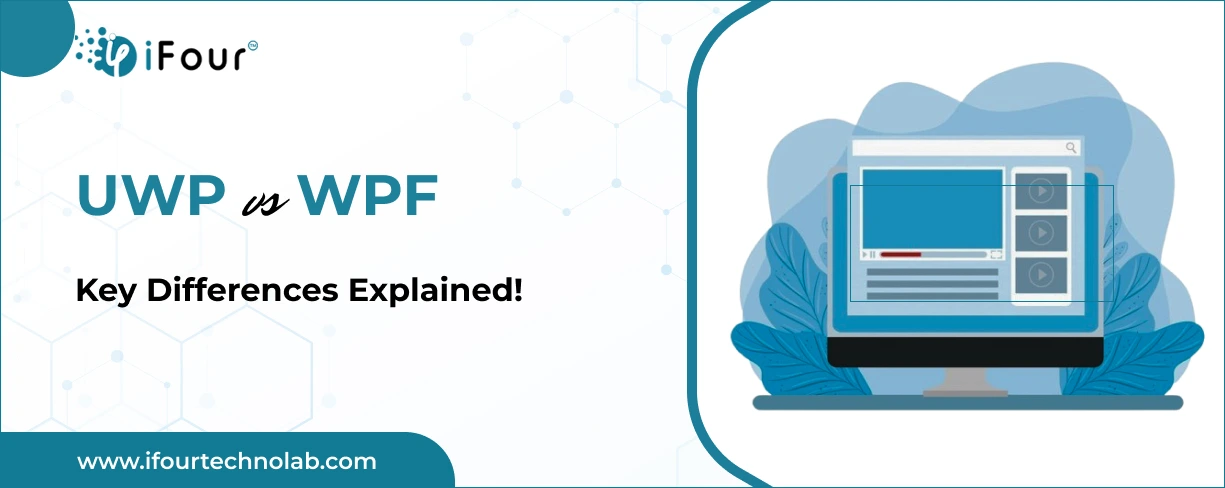What’s New in ASP.NET Core 10 – Key Features & Expert Insights
We tracked the evolution of .NET 9 on Reddit, and watched the heated debates on .NET 6 vs .NET 8. And just when we thought that things had finally settled, Microsoft drops another...
Listening is fun too.
Straighten your back and cherish with coffee - PLAY !

Software development could be seen in many forms, for instance, API development, mobile app development, website development, embedded systems, backend implementation, etc. Different industries have different software and these are done with extraordinary efforts, fulfilling their organizational needs and operations. Depending upon the software type, feature requirements, modules, plugin functionality, complexity, and size, its finishing time gets decided.
To talk about the process of development, it gets done through different stages of the SDLC process. The impeccable solutions of custom software development company have made various industry verticals adopt the software strategies and refigure their businesses. Probably, Custom software development is among those things which have changed the shape of the industry verticals.
“There are two benefits really stand out. First, custom software is the best solution for any company's needs. While an out of the box solution might seem to be more practical and readily available, your team will need to conform to the software program. You may need to change your workflow or operations to match the software. The software won't adapt to meet your team's needs. This isn't the case with custom software that WILL meet your needs perfectly. If you need certain functionality, you don't need to sacrifice it or get another, separate software program to do it.
Second, custom software becomes an asset for your company. If your company looks to merge or be acquired, it's another asset that can attract a buyer and make your company appear to be more valuable. For example, if you manage contractors using your own order management software, this could go to the new owners during the sale.”
- Katie Zillmer, Account Director at KitelyTech
“Having software that works the way your business works. Let me quickly explain what I mean by that. When you buy off-the-shelf software, you can only customize it to an extent. It might do most of the things you need, but there are often some areas where it's lacking. You're forced into manual workarounds to get it working the way you want...which wastes time. Or, you might have to change your business processes to accommodate the software's limitations. With custom software, you design it to work the way you work. It fits into your business processes and makes your entire organization more efficient.”
- Steve Hansen from michaels, ross &cole, ltd. (mrc)
“Primarily, the main draw of having bespoke software for your business is to streamline processes and remove the clutter that you could get with other software, optimising the process. A lot of other software may come with tools you don't need or with a very slow way of doing what you want. Having someone design software for you to meet your needs could make all work much faster. As well as this, it allows you to rely on the software and, if anything goes wrong, you know what the issue is and can have it fixed, whereas other programs may have you waiting months or even years for the next update. Even then, the thing you need fixed may be left, despite your reports. Finally, it is both cost effective and secure.”
- Adam Korbl, CEO & Founder of iFax
“The biggest benefit of creating a custom solution is that it can be, when developed correctly, a perfect fit. Where a premade solution gets the job done for 80-90% of what you need it for, the custom solution will let you work with the remaining outliers. It will connect to what you need it to, work with the formats that you already use, and can be made far more efficient with both memory and processor usage.”
- Matthew Emerick from Cross Trained Mind
“The biggest perk to custom software is that it can be fully customized to your specific business needs. Not only that, it allows for the software to grow with your business with future customizations and changes. Also, due to the nature of custom software, it is less likely to have security risks associated with it. On top of all that, custom software typically comes with great support, as it is coming directly from the developers of the software.”
- James Boatwright, CEO of CodeGalaxy
“The benefit of using custom software is that it is tailored to your organization, not a generalization of its customer base.
There are many great pieces of off-the-shelf software available. Most need to address a range of needs from its customers wide enough to allow for a comfortable user base. Most organizations do not use the full functionality of a piece of software. This is often because there are items of functionality that are not relevant to the organization.
Oftentimes when organizations use off-the-shelf software, they need to perform operations on several pieces of software and pull the various results together to create the item they actually need. Also, you need to license and train for these sometimes disparate pieces of software.
Custom software is made to reflect your business, instead of trying to wrap your business around a piece of software.”
- Randolph Morris, Founder & CEO of Bit Developers
“If your business needs custom software, you first have to make a decision. Do you purchase something off the shelf and customize it, or do you build it from scratch? You have to look at the cost of each, consider expenses like what software off-the-shelf costs, then how much time will be spent customizing it, do you have to outsource or ask the developer to help with the customization, labor costs, etc. If it’s part of your core line of business, you should always build it anyway. It’s more cost-effective to do so because you know exactly what you need it to do.
There are a few benefits of custom software. You get to design your features and put in exactly what you need. You get to dictate what people have access to. You get to help determine the location of features and the look of the platform to ensure ease of access. Custom software also ensures that your employees have the tools they need to do their jobs, so they won’t turn to shadow IT. When your custom software does all of those things, it creates security around your business with less fragility, and it helps your employees be as efficient as possible. All of these things add up to increased revenue and higher profits.”
- Pieter VanIperen, Managing Partner of PWV Consultants
“The reasons to opt for a custom-made software solution vary. In some cases, you may need to do so because your needs are unique and there is no off-the-shelf product that can satisfy them. Other times, it may be that your method of doing business is better and can’t be supported by a commercial product. With custom software, you’re in control of your own design and you can achieve a competitive advantage. In still other cases, your business may be running on two or more different systems that don’t talk to one another and you need a solution through which you can bring these together to communicate and see the whole picture.
I also point out that even for those who have had custom software developed and implemented already, if it’s getting older it may need to be upgraded rather than trying to find a solution in off-the-shelf products. If you were to swap out the old system for an off-the-shelf product, you’d have to change all your internal processes to adapt to that new software whereas by updating your custom program you’re creating a current system that will work more seamlessly with the processes you already have in place.”
- HyGoldstoff, Founder and CEO of InterSoft Associates
Personalization: Custom software is made specifically for you and should match your needs exactly.
Scalability: When you hire a company to create custom software, they can make sure it will scale to match your business’s growth.
Integration: As technology changes, custom software can be effectively integrated with the needs of your business.
Cost: Although pricier in the short-term going with custom software typically proves to be a better value in the long-term.”
- Todd Ramlin Manager of Cable Compare
“Custom software is an important proprietary asset to a company. Unlike off-the-shelf software, the competitors have no access to it and may not even be aware of certain features that give the company a competitive edge over them in the market.”
- Lazar Stojkovic, Founder & CEO of Dev Shopper
“The best benefit of custom software is that you can create features that your competitors can't. For example, if you use an out-of-the-box solution, you will often be limited by what you can create. By using custom software, you don't have as many of these restrictions, which allows you to be more creative and stand out against your rivals.”
- Adam Lumb, EN Site Manager of Cashcow Ltd
“I would highlight two benefits of custom software. First, while a COTS (Computer Off The Shelf) package often has significant functionality out of the box, many companies are not able to take advantage of that functionality due to the cost of change. A custom solution allows you to build the needed functionality as it is being adopted and therefore the cost curve more closely mirrors the adoption curve. With COTS solutions, one is spending a lot of up-front costs with limited initial benefits. The second benefit is that particularly in the initial conceptual phases of a project, users often don't fully appreciate their needs. A custom solution allows one to iterate while users learn what is needed. Furthermore, even after an initial release of functionality, it is often discovered that users have some other hidden process that is unaccounted for. With a custom solution, the functionality can be tweaked to address this newly discovered process; with COTS solutions, one often creates a manual workaround.”
- Jeffrey Cohen from Cohen Crew
“Here is the list of benefits:
You can model and automate your exact business processes.
You'll consolidate multiple data repositories into one cohesive database
You always start with a data conversion that cleans up all of the data
Comprehensive reporting is usually the main and most powerful feature
Multi-level and configurable system permissions and access
Audit trail for all data changes if necessary”
- Michael Cordova from 21st Century Technologies, Inc.
“1) Each organization and business has some specific problems that lead them to have software as a solution and the problem is usually unique or has some unique aspects. Therefore, always have a custom software will solve the exact specific problem and aspects of that.
2) Custom software is extendable. In another word, in most cases, the current problem is not the only problem, and later on, new problems come into play. Custom software can be extended to solve future problems.
3) Custom software is flexible. In another word, in most cases, the current problem will not remain the same, and as soon as the solution comes into the business, new aspects of the current solution will be raised. Therefore, it can be changed to the next versions to improve the solution.
4) The business plan can change during the software lifetime. For example, if the software has been solved the problem perfectly and other companies or businesses required the same solution, it can be soled as an enterprise version which can open a new business path for the company.
5) Custom software can add value and prestige to the company and the business in some cases.
6) Custom software can help the organization and the consumers in the company to grow. The employees can be involved to help the software to improve for the next version by their feedbacks. This involving help the organization to grow more and find new aspects that were missed and/or hidden before that.”
- SoheilSalarimanesh, Founder and CTO of ButikRea
“We use a custom CMS for our website instead of a platform such as WordPress or Drupal.
We dedicated to go custom for different reasons:
A custom platform gives our website a distinct personality. Websites based on WordPress can be great, but very often you can tell they're based on WordPress.
A custom platform is very customisable. We don't depend on other people's themes or plugins to change things the way we want.
A custom platform gives us freedom. We're totally independent. We don't depend on WordPress or Drupal's updates. If WordPress or Drupal disappeared tomorrow, our website would still exist.
Our website has more value than a website based on a common CMS. It's worth more money in case we want to sell it one day because it's totally custom and original.”
- Gregory Golinski, Head of Digital Marketing at YourParkingSpace
“Custom software typically provides the following benefits:
Flexibility for your unique business needs. Often times, SaaS businesses and low-code platforms have some sort of limitation that prevents you from solving a problem or building out a business process. It's never a good idea to let a tool dictate how you run your business and waiting around for features to be added can place you behind the competition.
Deeper knowledge of your domain. By creating your own software, you ensure that the technology you're using has been purpose-built for your problems, rather than for the masses. This can often result in a greater level of adoption throughout your organization.
Avoiding vendor lock-in. When you're not building the software or code yourself, you start to gain a reliance on the SaaS businesses you work with, making it more difficult to separate and switch vendors in the long run. Building custom software helps you maintain control over how your business processes are operating.”
- Blake Burch, Co-founder of Shipyard
“First, custom software focuses on your problems specifically and you’re not forced to use one app with a bunch of integrations.
Second, you can save a ton of time by using custom workflows built for your company only.
Third, you only get the features you need without the unnecessary feature bloat that comes with a lot of today’s apps. It may be more expensive to build a custom app in the beginning, but having something made just for you pays off in the long run.”
- Adam Hempenstall, CEO and Founder of Better Proposals
“Standing out in the highly competitive market is the key to creating a lasting impression on the audience. Custom software can help a brand achieve that. Custom software is built keeping in mind an organization's specific needs and expectations. In a way, custom software can prove to be a better choice as compared to off-the-shelf software available for everyone.
Some of the practical benefits of custom software are:
Custom software is created keeping in mind the minutest needs and requirements of an enterprise. The software development company will analyze the internal processes of an organization to provide a highly optimized solution. Implementation of a custom software will give an opportunity to optimize internal processes.
Today, data is one of the valuable assets for any organization. In the case of off-the-shelf software, hackers can easily find ways through the vulnerabilities to enter an organization’s system. Whereas in the case of custom software, chances of such an intrusion are less as security is in-built as per the client’s demands.
Custom software comes with scalability. It means that the software will be able to address the changing needs of an organization. The development team will handle the change requests and improve the software’s features. In the case of an off the shelf software, you are dependent on another company to enhance its features and make life easier for you.
Off the shelf, the software is created on the basis of a general set of requirements. It is quite possible that you don’t need all the features. The benefit of custom software, in this case, is that it has the specific features required for the smooth functioning of your organization. User friendliness of a custom software will increase the productivity and automate some of the repetitive tasks.”
- Nathan Sebastian, Content Marketer at GoodFirms
“These days, the final product alone isn't necessarily the ultimate determinant for customers. Attributes, such as convenience, quality, price, etc., are important factors, and these intangibles are more process-related than product-related.
Custom software improves operational productivity so that organizations can focus on their core competencies. It also allows teams to be accessible, flexible and innovative, giving them a competitive advantage.
Off-the-shelf software doesn't specifically address the unique workflows that distinguish businesses from their competitors. Organizations need technology that streamlines and automates mundane and complex tasks. Administrative tasks have a way of weighing teams down. When we convert a paper process to a digital process, that can go a long way to free up time. And, when we automate a digital process, that frees up even more time. Teams can use that time to focus on revenue-generating activities such as fostering relationships with customers, developing creative marketing strategies, enhancing product features and functions, etc.
In our experience, we've found that collaborating directly with the process experts in mapping the path to digitizing or automating a workflow reaps great results. The ability to apply practical, first-hand knowledge is, by far, superior to theoretical guidance when building an application. Rather than relying on workarounds or waiting on new feature releases for off-the-shelf software, companies can customize their software to do exactly what they need it to do when they need to do it.
Employees benefit from custom software in addition to companies. Being productive instills a sense of accomplishment and satisfaction on many levels. Often, end-users actively participate in the application development process and they're integral in identifying bugs and necessary enhancements post-production. From a human resource perspective, ownership and empowerment contribute to a happy and productive work culture.”
- Christine Sooklal, Marketing Co-ordinator at The Support Group
“Benefits of custom software:
1) It is not expensive as it to be said. Possibility to start with the MVP means affordable cost and flexibility.
2) Make use of effective technologies working for a particular business model. Custom products designed on demand. Client’s requirements which are considered during the pre-development stage are unique markers to determine the best technologies to apply.
3) High functional coverage.
4) Control over the software. The client is the only holder of the software package, while the commercial packages are accessed by multiple users.
5) Custom software is more scalable. The program can be modified whenever is necessary.
6) Custom software is more secure. Incentives for hacking are reduced as the number of users is limited.
7) Support. Easier way to communicate with the developers who made the software first-hand rather than with giant off-the-shelf producers.
8) Ownership over the software code. For entrepreneurial minds that means the code can be sold for profit in future.”
- Tommy Karyukin, CEO of EDISON Software Development Centre
Just because an off-the-shelf software is freely available to everyone with complete control, there is an increased possibility of threats. On the other hand, implementing custom software with our own customizations and security would be tough for hackers to infiltrate.
With custom software, an organization would get a spectacular team of support engineers that were involved in the SDLC process of your software. As they are familiar with every unit of your software or application, it becomes easy for them to handle any type of concerns and resolve them in time.
Custom software is among those solutions that fuel the success of the organization and empower the business strategy. It provides countless benefits and especially helps with time and cost savings. Through custom software, you can implement the functionalities and features as per your requirement and improve your enterprise productivity. A custom software strategy is the best for SMEs to expand their footprints in the market and make a quick turnaround.

We tracked the evolution of .NET 9 on Reddit, and watched the heated debates on .NET 6 vs .NET 8. And just when we thought that things had finally settled, Microsoft drops another...

Several experts, particularly those just starting out, often find themselves confused about WPF and UWP, wondering if they are the same. Since they are used to create great UIs for...

Many companies rely on advanced technologies to make informed decisions in their business. For instance, some Chief Technology Officers (CTOs) turn to Power BI consulting services,...